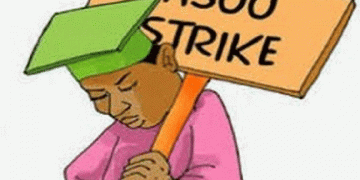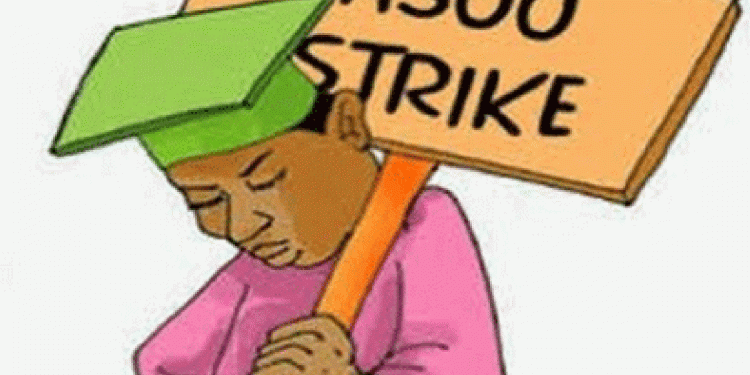By Grace Udofia
Few days after threatening to embark on a nationwide strike, Nigeria’s umbrella body for public universities, the Academic Staff Union of Universities (ASUU) has disclosed that only two of its eight demands have been met by President Muhammadu Buhari in the last nine months.
The News Agency of Nigeria (NAN) reports that the Ibadan zone of the union disclosed this in a statement after its meeting at the Ladoke Akintola University (LAUTECH), Ogbomoso chaired by its Coordinator, Oyebamiji Oyegoke.
Oyegoke explained that the strike was “a ticking bomb” and feared that it would engulf the educational system in another crisis.
He said, “For the avoidance of doubt, ASUU stated that only salary shortfall and setting up of Visitation Panels to the Federal Government-owned universities have been addressed by the government in nine months.
“Other demands such as the renegotiation of conditions of service, injection of revitalisation funds, payment of earned academic allowances, implementation of the University Transparency and Accountability Solution (UTAS) have not been addressed.
“The proliferation of state universities, release of withheld salaries and non-remittance of check-off dues of unions contained in the December 22, 2020, Memorandum of Action, had not been addressed.
“The claim by the minister of Labour and Employment that the money allocated for Revitalisation of Public Universities had been paid as contained in the MoA of 2020 cannot be true.
“The same minister confirmed on August 2, 2021, that the money is still in the custody of the Central Bank of Nigeria (CBN), only awaiting application by the minister of Education for eventual transfer to the NEEDS Assessment Fund Account.
“That the government is working hard to facilitate the release of money by the CBN since January 2021 leaves a sour taste in the mouth.
“On IPPIS versus UTAS, he explained that withholding salaries for months, non-release of EAA, non-payment of check-off dues accruing to the union, despite ASUU’s commitment to resolving the impasse, could only be an invitation to another possible cycle of industrial crisis”.




































